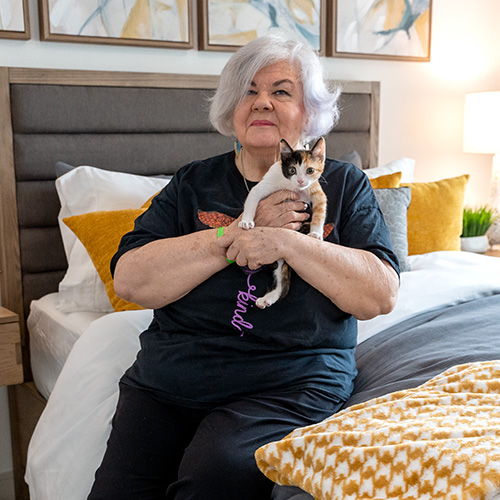LHI Houston – What We Do
Lesbian Health Initiative of Houston, Inc.
We are the Community. We are the Change.
Our Services
Access
LHI’s Access Program provides funding and support for direct access to healthcare for its LGBTQ+ clients. This program delivers health insurance information, education, and enrollment assistance, as well as access to a diverse array of no cost health screenings targeting high risk health issues, navigation from abnormal screening results to diagnostics and treatment (if needed) and introduction and navigation into a patient centered and LGBTQ+ culturally competent medical home.

Education
LHI’s Education Program is designed to educate clients, perspective clients, health and wellness professionals, and the LGBTQ + community, at large. LHI’s Education Program consists of a range of monthly workshops that are hosted at the Montrose Center, which include workshops for queer and trans people of color, sexual health education, and more. The Education Program also conducts a variety of community workshops, cultural competency-humility presentations, and panels.

Advocacy
The Advocacy Program serves as a vehicle to increase awareness of LGBTQ+ health issues and promote LGBTQ+ inclusive health research and policies. LHI provides its collaborative partners with LGBTQ+ health issues education, as well as applicable new LGBTQ+ inclusive research data. LHI advocates for Medicaid expansion, the inclusion of sexual orientation and gender identity in formal health data collection, and LGBTQ+ inclusive health policies. LHI participates in doing advocacy events with other social services groups and organizations who work with the LGBTQ+ community, including arts and activism groups, universities, health coalitions, etc.

Why We Do It
The History of LHI
LHI began in a room on the second floor of Inklings, a lesbian bookstore in Montrose, when a small group of women came together determined to take action to address the increased risk and rate of breast cancer research showed lesbians faced. In December 1993, LHI became a 501(c)(3) nonprofit and authorized and funded the first Houston area needs assessment to identify the gaps in health services, as well as barriers to access for lesbian, gay, and bisexual women in the Houston area. The results would be used to determine the types of health services that were needed and could be provided by LHI.

LHI’s authorized study “Healthcare Needs Assessment for Lesbian, Gay, and Bisexual Women” showed that LGB women in Houston faced health disparities and barriers to healthcare access that included low economic status, lack of health insurance, high stress factors, low health literacy, and experienced health provider discrimination and lack of LGB cultural and health competency and knowledge. Over 15 years later, we see many of the same barriers today.
The Need is Great
The state of Texas and the Greater Houston area lead the nation in uninsured rates. In 2019, Texas was the highest in the nation with 18.4% of its population uninsured and the city of Houston area has the highest uninsured rate for large cities at 28%. Texas and Houston both are more than double the national uninsured rate is around 9.2%, LHI estimates that there are many more LGBTQ+ individuals and families without health insurance in the Greater Houston area. In particular, those who are Hispanic/Latinx, Black/American-American, and/or transgender face additional barriers to healthcare and are disproportionately uninsured. According to the Texas Medical Association, in Texas 61% of Hispanic/Latinx individuals are uninsured which is almost double the national rate of 37%.

Further studies show that people who identify as LGBTQ+ are more likely to be uninsured, are less likely to have a regular healthcare provider, and often cite costs as a main factor in not being able to access healthcare. LGBTQ+ women and transgender men are at an increased risk for heart and vascular disease, diabetes, and cancer, including breast, cervical, lung and colorectal cancers. According to a recent Fenway Institute report, one of the contributing factors to increased breast and cervical cancer risk is they are 4 to 10 times less likely than their heterosexual counterparts to have a pap test, the typical point of entry to breast and cervical cancer detection. A 2011 study reports that on average medical students receive five hours of training on LGBTQ+ health issues throughout their entire medical education, and a 2018 report shows how this lack of training has led to providers who feel unprepared to treat the LGBTQ+ population competently.
RELATED SERVICES
Eliminating barriers to healthcare and inspiring health and wellness for lesbian, gay, bisexual, transgender identified women and transgender men
Our Services
Access
LHI’s Access Program provides funding and support for direct access to healthcare for its LGBTQ+ clients. This program delivers health insurance information, education, and enrollment assistance, as well as access to a diverse array of no cost health screenings targeting high risk health issues, navigation from abnormal screening results to diagnostics and treatment (if needed) and introduction and navigation into a patient centered and LGBTQ+ culturally competent medical home.

Education
LHI’s Education Program is designed to educate clients, perspective clients, health and wellness professionals, and the LGBTQ + community, at large. LHI’s Education Program consists of a range of monthly workshops that are hosted at the Montrose Center, which include workshops for queer and trans people of color, sexual health education, and more. The Education Program also conducts a variety of community workshops, cultural competency-humility presentations, and panels.

Advocacy
The Advocacy Program serves as a vehicle to increase awareness of LGBTQ+ health issues and promote LGBTQ+ inclusive health research and policies. LHI provides its collaborative partners with LGBTQ+ health issues education, as well as applicable new LGBTQ+ inclusive research data. LHI advocates for Medicaid expansion, the inclusion of sexual orientation and gender identity in formal health data collection, and LGBTQ+ inclusive health policies. LHI participates in doing advocacy events with other social services groups and organizations who work with the LGBTQ+ community, including arts and activism groups, universities, health coalitions, etc.

Why We Do It
The History of LHI
LHI began in a room on the second floor of Inklings, a lesbian bookstore in Montrose, when a small group of women came together determined to take action to address the increased risk and rate of breast cancer research showed lesbians faced. In December 1993, LHI became a 501(c)(3) nonprofit and authorized and funded the first Houston area needs assessment to identify the gaps in health services, as well as barriers to access for lesbian, gay, and bisexual women in the Houston area. The results would be used to determine the types of health services that were needed and could be provided by LHI.

LHI’s authorized study “Healthcare Needs Assessment for Lesbian, Gay, and Bisexual Women” showed that LGB women in Houston faced health disparities and barriers to healthcare access that included low economic status, lack of health insurance, high stress factors, low health literacy, and experienced health provider discrimination and lack of LGB cultural and health competency and knowledge. Over 15 years later, we see many of the same barriers today.
The Need is Great
The state of Texas and the Greater Houston area lead the nation in uninsured rates. In 2019, Texas was the highest in the nation with 18.4% of its population uninsured and the city of Houston area has the highest uninsured rate for large cities at 28%. Texas and Houston both are more than double the national uninsured rate is around 9.2%, LHI estimates that there are many more LGBTQ+ individuals and families without health insurance in the Greater Houston area. In particular, those who are Hispanic/Latinx, Black/American-American, and/or transgender face additional barriers to healthcare and are disproportionately uninsured. According to the Texas Medical Association, in Texas 61% of Hispanic/Latinx individuals are uninsured which is almost double the national rate of 37%.

Further studies show that people who identify as LGBTQ+ are more likely to be uninsured, are less likely to have a regular healthcare provider, and often cite costs as a main factor in not being able to access healthcare. LGBTQ+ women and transgender men are at an increased risk for heart and vascular disease, diabetes, and cancer, including breast, cervical, lung and colorectal cancers. According to a recent Fenway Institute report, one of the contributing factors to increased breast and cervical cancer risk is they are 4 to 10 times less likely than their heterosexual counterparts to have a pap test, the typical point of entry to breast and cervical cancer detection. A 2011 study reports that on average medical students receive five hours of training on LGBTQ+ health issues throughout their entire medical education, and a 2018 report shows how this lack of training has led to providers who feel unprepared to treat the LGBTQ+ population competently.





